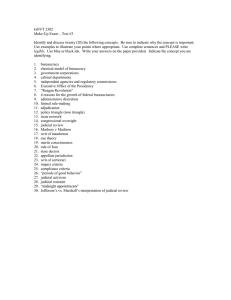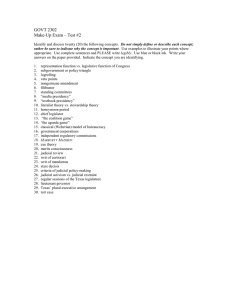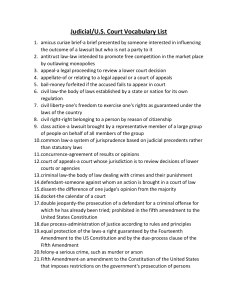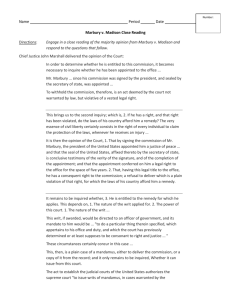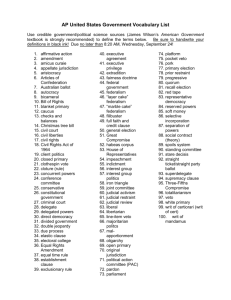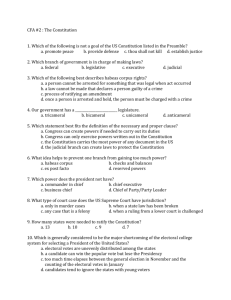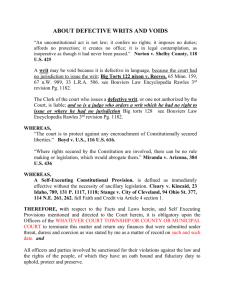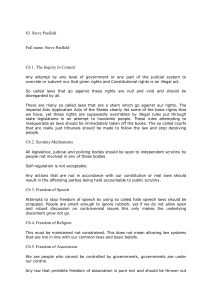AP Gov Ch 15 Studyguide
advertisement
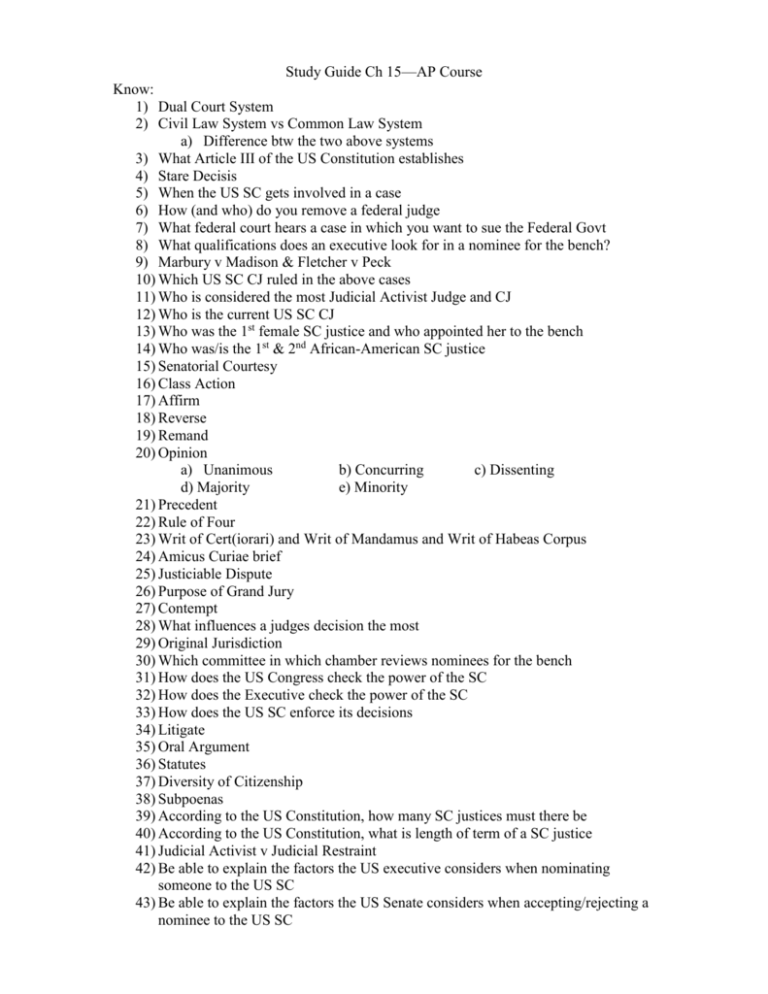
Study Guide Ch 15—AP Course Know: 1) Dual Court System 2) Civil Law System vs Common Law System a) Difference btw the two above systems 3) What Article III of the US Constitution establishes 4) Stare Decisis 5) When the US SC gets involved in a case 6) How (and who) do you remove a federal judge 7) What federal court hears a case in which you want to sue the Federal Govt 8) What qualifications does an executive look for in a nominee for the bench? 9) Marbury v Madison & Fletcher v Peck 10) Which US SC CJ ruled in the above cases 11) Who is considered the most Judicial Activist Judge and CJ 12) Who is the current US SC CJ 13) Who was the 1st female SC justice and who appointed her to the bench 14) Who was/is the 1st & 2nd African-American SC justice 15) Senatorial Courtesy 16) Class Action 17) Affirm 18) Reverse 19) Remand 20) Opinion a) Unanimous b) Concurring c) Dissenting d) Majority e) Minority 21) Precedent 22) Rule of Four 23) Writ of Cert(iorari) and Writ of Mandamus and Writ of Habeas Corpus 24) Amicus Curiae brief 25) Justiciable Dispute 26) Purpose of Grand Jury 27) Contempt 28) What influences a judges decision the most 29) Original Jurisdiction 30) Which committee in which chamber reviews nominees for the bench 31) How does the US Congress check the power of the SC 32) How does the Executive check the power of the SC 33) How does the US SC enforce its decisions 34) Litigate 35) Oral Argument 36) Statutes 37) Diversity of Citizenship 38) Subpoenas 39) According to the US Constitution, how many SC justices must there be 40) According to the US Constitution, what is length of term of a SC justice 41) Judicial Activist v Judicial Restraint 42) Be able to explain the factors the US executive considers when nominating someone to the US SC 43) Be able to explain the factors the US Senate considers when accepting/rejecting a nominee to the US SC
